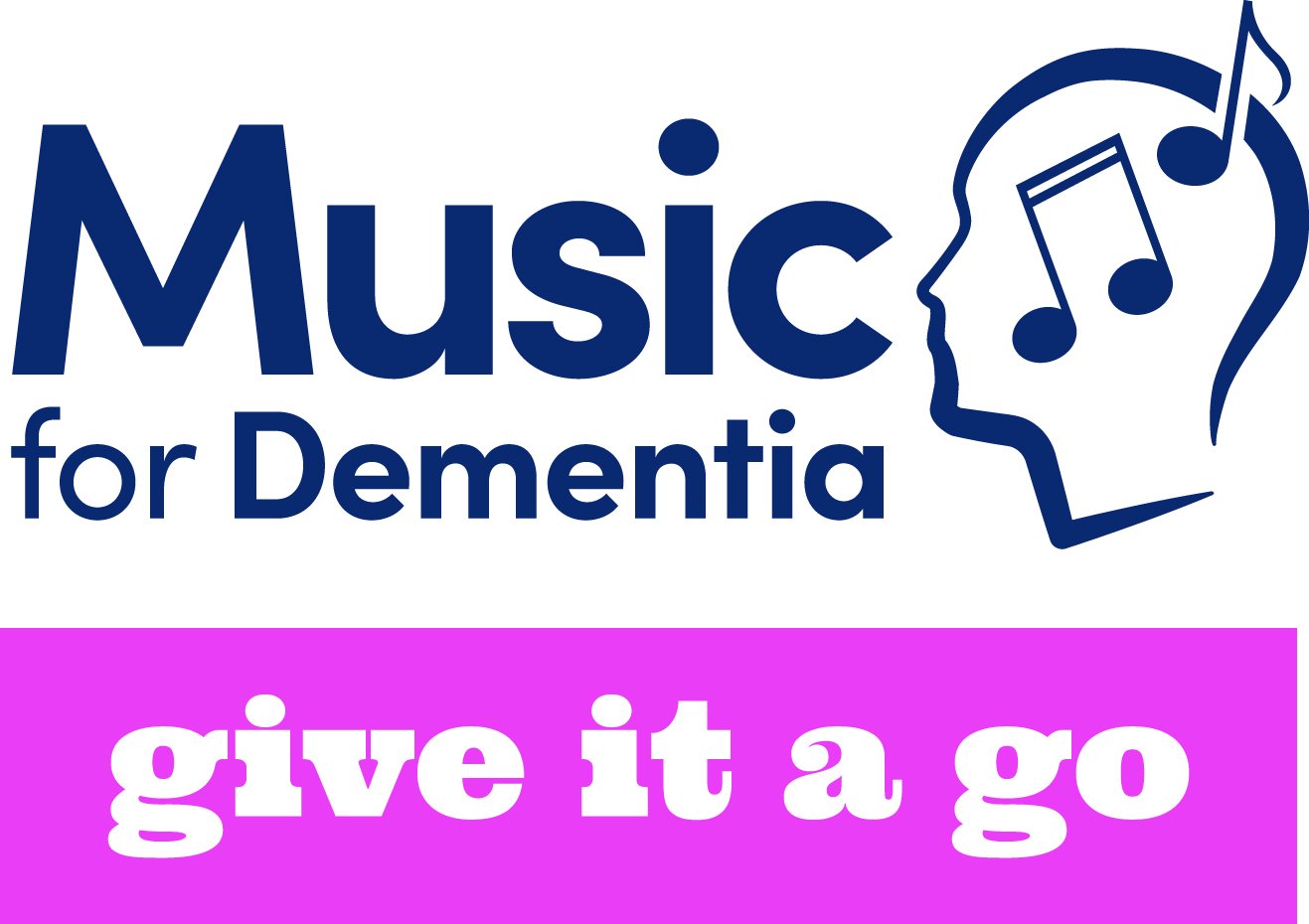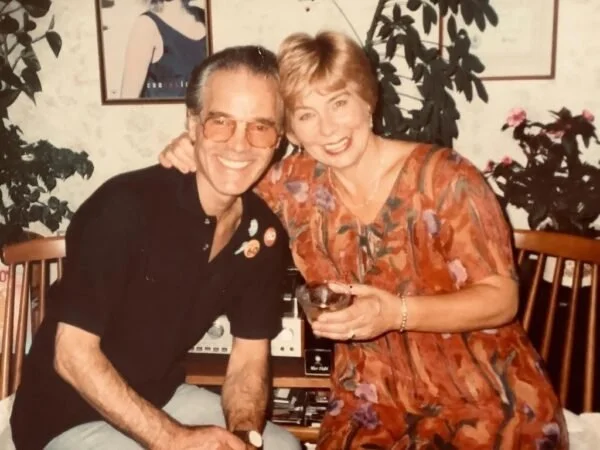The Gleeman
Music for Dementia is a cross-sector campaign involving hundreds of organisations and thousands of individuals. We have all had a different journey to understanding the reality of dementia, and the power of music to help. From time to time, we like to share a Guest Blog from a supporter about their experiences.
The Gleeman has collaborated with Music for Dementia and Thank You Day to demonstrate the power of music in aiding individuals with dementia. Having personally witnessed the distressing effects of dementia on his parents, he has authored a blog that chronicles their decline, as well as the joyous musical moments that brought them back to the present. He has also generously created a piano instrumental version of the ‘Thank You Day’ anthem, following the Hal Leonard arrangement, to enable individuals with dementia and their caregivers to participate in the music. We express our gratitude to The Gleeman for his contributions.
My Mum lived with dementia for 25 years. We believe that she was in her late 40’s when it began, the same age I was when I made the decision to embark upon my current musical journey, though I was unaware of her condition for some time as Dad disguised this. Since leaving University I’d stayed in London, they lived 330 miles away in Cornwall but I still saw them several times a year. Dad was blind in one eye and had receding vision due to Glaucoma in the other, so he had to come up a couple of times a year for check-ups at Moorfield Eye Hospital, and they would stay with us. During these visits, I noticed that Mum would struggle occasionally, but in my ignorance I would get impatient and frustrated with her. Dad thought he was doing the right thing by shielding her but I wish I could have spent time with Mum while she was still relatively well and had the opportunity of saying things that I wanted to say. Eventually the devastating diagnoses was revealed.
Mum continued her slow inevitable dementia descent. Though it became difficult to travel with her as she became more unpredictable, it was during one of our final trips abroad that I first witnessed the power that music can have for those suffering from dementia. It was Christmas, we had just visited Salzburg and were watching The Sound Of Music. Mum was snuggled up against Dad on the sofa in a docile state. Then one of the songs from the musical made her suddenly bolt up, a spark in her eyes. She started “singing” along waving her arm out in front her, conducting the unseen orchestra.
It was amazing to behold. Something had connected to penetrate the dementia fog like nothing else could, this music that she had been familiar with gave her a sense of enjoyment and peace.
Dad was devoted and spent his retirement caring for Mum. He was very stubborn though, refusing to accept outside help. After many conversations we got him to agree to respite care so he could have a break, maybe pop down to the town to buy one of his beloved Cornish pasties which had become his staple diet. As things degenerated, Mum started to have periods of day care at a home a few minutes walk from the house, but Dad would always be there next to her. After much persuasion, Dad accepted that it was in Mum’s best interests for her to be admitted full-time, but he would still visit every day, would feed her and sit with her until they had to turf him out.
That is until he was diagnosed with dementia himself…
We were moving house and were unloading when he called to share his news. I can’t imagine how terrifying this was for him, having witnessed the ever-changing nature of the condition, the impact that it has and what was in store. It makes me shiver. Dad on his own, my sister and I both living in different places separated by considerable distance, and him insistent that support was unnecessary. A similar path evolved, where your parent will happily chat away but no longer remembers who you are, which is a sucker punch to the gut. Dad was adamant he wanted to stay home and not go into residential care (I have much admiration for those dedicated staff providing specialist care). We did what we could for him to stay there until this became untenable. He ended up in the same care home as Mum, with whom he had honoured his vows but the cruel devastating nature of their circumstance now meant they were oblivious to one another.
Together alone. Heart-breaking.
Some of the carers knew Dad from the visits attending Mum, and regardless of their current state, they would sit them together when they could. Once, when seated side by side, they were spotted reaching out and held each other’s hand.
Mum passed away in May 2020 as we were prepping to go into the studio to record the material for my album. In her prime, she was a vivacious woman who took great pride in her appearance and was always gregarious but had now transformed into a waif. No recognition. No communication. It’s hard to imagine what quality of life she had. Her’s was a particularly long goodbye, most don’t get it so young and the progression of the disease tends to be faster and the end reached mercifully swifter. You end up grieving for them over that prolonged period, as the person that you know gradually slips away from you whilst they are physically alive, which is not easy to reconcile.
Every now and then this thought will catch your mind and it will stun. I had grieved for Mum on and off as I lost her many years ago, but then I lost her again and grieved further. I wrote “You Are Not Alone” a few days after she passed, it was a comfort blanket to wrap up in, whilst confronting that final and irreplaceable loss. The unexpected impact was, being no longer confronted with how the disease had made her become, I was once again able to visualise her as the jolly woman that she had been and I am glad that this is now my prevailing memory of her.
Dad died three months later in August 2020. I’d like to think his love for Mum was so deep routed that even through the haze of dementia, he couldn’t bear to be without her any longer. I saw him last a week before his final breath. I remembered the impact that familiar music had on Mum. Even when Dad was being cared for at home I had dug out his old records, switched the turntable and played them for him. I tried to convince the caring team to continue to do so in my absence. When sitting with him, I searched out a song of old on my phone that I knew he was familiar with. Even so close to the end, the same effect happened – a sudden alertness, light in the eyes and a sense of calm. It’s powerful stuff.
My one regret is that I am not able to share this musical journey with my parents. Every small milestone achieved is a bittersweet moment. Most of us have an innate urge to make our parents proud. While I can revel in my disbelief that a song I created is being played whilst being interviewed on BBC Radio Cornwall, served up with that comes a side of sorrow in that under different circumstances, my parents would have tuned in avidly. When the first press article appeared which was in their local Falmouth Packet, my thrill at that is counterbalanced by the thought that my parents are not there to read it and that had it been otherwise, Dad would have been starting a scrapbook to capture these moments.
Maybe it will get easier with time. Maybe not.
I can’t claim that I had a watershed moment when that song aroused my dementia riddled mother on holiday, or that this was the rocket that propelled me to produce my album “Something to Say”, that seed had already begun to germinate, but the insight endures to keep me motivated. The thought that someone could become familiar enough with one of my songs that, if they were unfortunate enough to be inflicted with dementia, it might bring them back to this world, for a few moments, well that is fulfilment.



